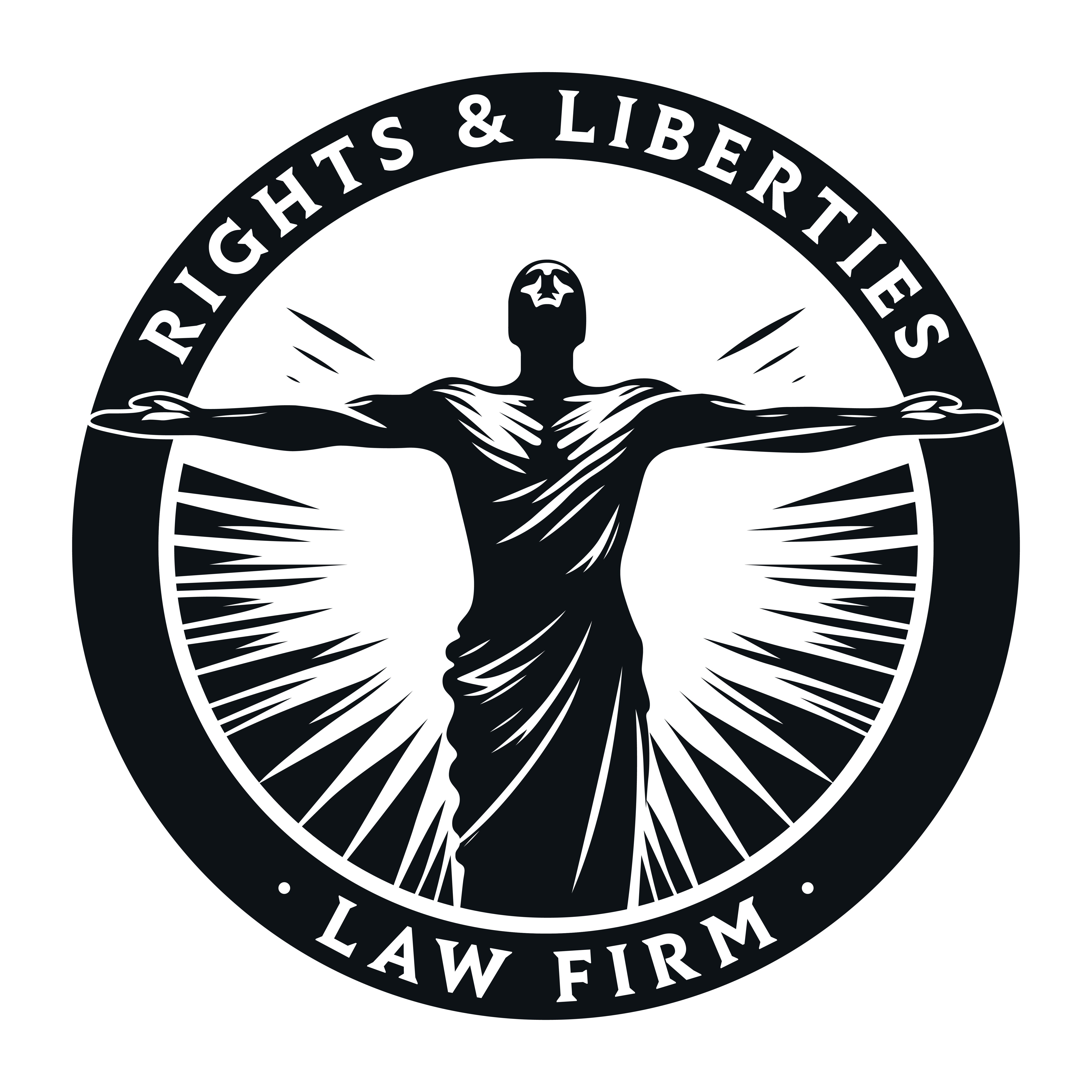Postconviction Advocacy
At Rights & Liberties Law Firm, we believe that justice doesn’t end with a verdict. If you or a
loved one has been wrongfully convicted of a crime or if the conviction rests on constitutional error
the only thing worse than the weight of the sentence is the weight of the injustice. Sadly, people are
wrongfully convicted all the time. The criminal legal system is not infallible. It’s run by people and
rife with error. If your conviction rests on legal error or if you’ve been wrongfully convicted for a
crime you did not commit, Rights & Liberties Law Firm can help right the system’s wrongs.

What is Post-Conviction Relief in Colorado?
Postconviction advocacy offers you a chance to challenge an unjust conviction or sentence. Through
postconviction relief a person can challenge the legality of their conviction and pursue a chance for
freedom. Colorado’s rules surrounding postconviction remedies are found in Colorado Rules of
Criminal Procedure 35. The Denver Metro postconviction attorneys at Rights & Liberties Law Firm
will fight to get you postconviction relief.
Grounds for Post-Conviction Relief in Colorado
Our attorneys meticulously dissect your case to identify the legal errors your wrongful conviction
rests upon. Common grounds for postconviction relief are:
- Motions to Correct an Illegal Sentence 35(a): These motions address sentencing errors, such as sentences that violate the law or your constitutional rights.
- Motions for Reconsideration 35(b): If you received an unduly harsh sentence, you may be able to file a motion for reconsideration. We can help you develop postconviction mitigation to make a compelling case for a more lenient sentence. The deadline to file a Motion for Reconsideration is 126 days after sentencing. If you’re considering 35(b) relief, time is of the essence.
- Motions to Vacate Conviction Obtained in Violation of the Constitution 35(c)(2)(I):
- Suppressed Evidence: When crucial evidence was wrongfully withheld.
- Coerced Confessions: Unjustly extracted admissions.
- False Testimony: Questionable witnesses and unreliable testimony.
- Jury Misconduct: If jury members exhibit bias, prejudice, or misconduct, it can violate the defendant’s right to an impartial jury. Evidence of such behavior may lead to a new trial.
- Ineffective Assistance of Counsel Motions 35(c). In Strickland v. Washington, 466 U.S. 668
(1984), the United States Supreme Court held that in order for a convicted defendant to
establish that he or she was deprived of the Sixth Amendment right to effective assistance of
counsel at trial, the defendant would have to show: (1) deficient performance by trial
counsel; and (2) prejudice. Common issues in ineffective assistance of counsel cases are:
- Failure to investigate, interview, prepare, or call witnesses;
- Inadequate review and utilization of important documents and evidence such as medical records, DNA analyses, laboratory reports, police reports, and inconsistent statements;
- Neglecting discovery materials and subpoenas;
- Failure to file important motions such as suppression of statements, physical evidence, or identification, can constitute ineffective assistance and failure to demand certain hearings;
- Inadequate counsel before guilty plea: attorneys have a duty to properly advise their clients on the consequences of taking a plea;
- Lack of coherent theory of defense;
- Inept jury selection;
- Failure to make important motions in limine where certain evidence should be excluded to ensure a fair trial;
- Motion to Vacate Conviction Under a Statute that is in Violation of the Constitution or for Constitutionally Protected Conduct 35(c)(2)(II)
- Motion to Vacate Conviction Obtained in Court without Jurisdiction 35(c)(2)(III)
- Motion to Vacate Conviction Based on Existence of New Material Evidence: In Colorado, a defendant may file a motion to vacate their conviction if there exists new material evidence that was not previously presented or heard during the trial. The evidence must be material—meaning it could significantly impact the case. The defendant or their attorney must demonstrate that, despite reasonable diligence, this evidence could not have been known or learned before the court or jury made their decision. If the new evidence undermines the fairness of the conviction or sentence, the court may grant relief.
Timing Matters: When Can You File?
The statute of limitations to file postconviction petitions varies based on the offense:
- Petty Offenses: 6 months
- Misdemeanors: 18 months
- Felonies (except Class 1): 3 years
- Class 1 Felonies: Anytime

Filing Your Postconviction Petition
The postconviction attorneys at Rights & Liberties Law Firm craft compelling petitions to attack
your conviction. Once drafted, we’ll file the postconviction petition with the court. The fight for
justice is on.
The Judge’s Discretion in Granting or Denying Your Petition
The judge wields the scales of justice, deciding whether to grant or deny relief. The Judge will
consider whether:
- the motion is timely;
- the motion states adequate factual or legal grounds for relief;
- the motion states legal grounds for relief that are meritorious;
- the motion states factual grounds that, if true, entitle you to relief; and
- the files and records of the case show to the satisfaction of the court that your factual
allegations are true.
At this phase in the postconviction litigation, the ball is in the judge’s court and the judge will
consider our arguments in determining whether to grant relief.
The Awaited Decision
After the judge deliberates, the court will issue its opinion. That opinion determines if your petition
for postconviction relief is granted, denied, or will be heard with a further hearing. If the judge
denies your postconviction petition without a hearing, the judge will issue a written denial within 63
days.
If the judge wants to hold a hearing, the judge has determined that there are merits to your petition
and the battle will continue with live testimony from witnesses before the court. When the judge
grants a hearing, the judge will first order the prosecution to file a written response within 35 days.
Once the prosecution files their response, you have the right to file a written reply to the
prosecution’s arguments within 21 days.
At the hearing, both sides present witnesses, evidence, and arguments. 35(c)(3)(V) requires the court
to enter a written or oral finding either granting or denying the postconviction petition within 63
days of the conclusion of the hearing or provide the parties a notice of the date by which the ruling
will be issued.
Three-Step Path to Postconviction Representation
Step one. If you or a loved one believes your conviction rests on legal error or that you were
wrongfully convicted the first step is to contact Rights & Liberties Law Firm to start your free
postconviction relief case quote. We’ll quote you instantly so you can know how much your
postconviction case review will cost up front.
Step two. Instantly schedule a free 20 minute consultation. We’ll discuss the issues surrounding your
conviction. We’ll also discuss the case review process which starts with obtaining the entire case file
including the court file, your previous attorney’s case file, the pleadings, motions, and transcripts
from your case. At Rights & Liberties Law Firm, we begin each postconviction case by obtaining the
record, scouring it for legal errors, researching the likelihood of success and only then, after having
fully informed you of your chances of obtaining postconviction relief, agreeing to draft and file your
petition.
Step three. After your consultation, should you want to move forward with postconviction
representation, we’ll email you a fee agreement. E-sign the fee agreement, pay the fee online
(financing available), and we’ll get to work obtaining the documents and records we’ll need to begin
investigating your conviction and developing strategies to attack it.
Unwavering Postconviction Advocacy
Postconviction isn’t a mere legal process; it’s a relentless pursuit of fairness and justice. Have no
illusions, postconviction relief is extremely difficult to obtain. The odds are stacked against the
convicted. At Rights & Liberties Law Firm, We’ll do everything in our power to give you the best
chances of success in obtaining postconviction relief.
